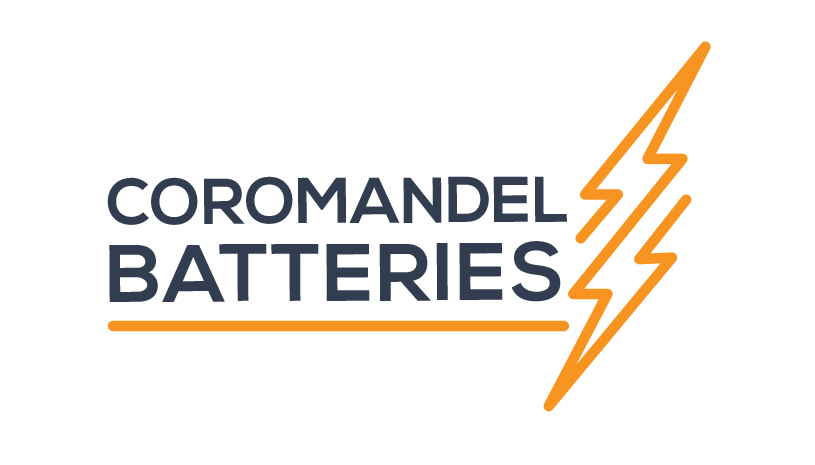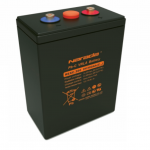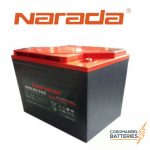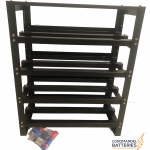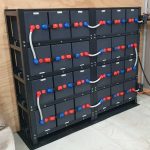We offer a range of Narada lithium and lead carbon batteries and racking systems
Narada lead carbon batteries have earned a great reputation in the New Zealand market over the last 12 years. Based on the original “UltraBattery” designed by the CSIRO in Australia and first commercialised in the USA by East Penn and in Japan by Furakawa, the REXC series battery technology uses a nano carbon material with high capacitance and high conductivity on the negative electrode. This combines the advantages of both lead acid batteries and super capacitors to enable faster recharge. The lead carbon battery technology provides not only a higher energy density, but also high power, rapid charge and discharge, and longer cycle life than traditional lead-acid batteries.
In solar off-grid situations batteries often spend many days in a partial state of charge. With traditional lead-acid batteries (flooded, GEL or AGM) this leads to sulphating on the negative electrode and loss of capacity over time. A typical traditional lead-acid deep cycle battery would be discharged to a maximum of 30% of its capacity and would achieve a cycle life of 1500 cycles (5 years) if maintained correctly. Narada REXC batteries can be regularly discharged to 50% of capacity, and used in a partially discharged state for extended periods without damage, yet still achieve a cycle life of 4500 cycles (12 years). When you have extended periods of cloudy weather, the occasional discharge down to 70 or 80% depth of discharge will not harm the REXC series battery, giving your system higher resilience overall.
Narada have also been manufacturing Lithium Iron Phosphate batteries (LFP or LiFePO4) , initially for the telecom market, but now also for the home battery market. The third generation Narada Lithium NESR48100 battery is designed for home use and is scalable from a single unit providing 4.8kWh of capacity up to 16 units in parallel providing 76.8kWh. LFP batteries can be cycled daily down to 90% depth of discharge and have a cycle life of up to 6000 cycles depending on depth of discharge. The NESR48100 supports CAN Bus communication to many common inverter chargers.
